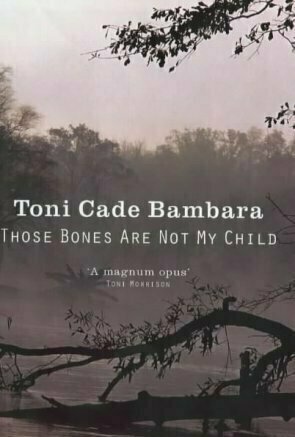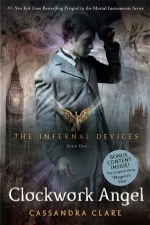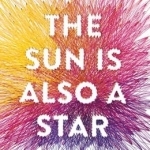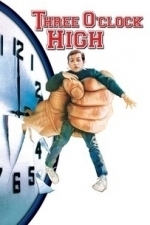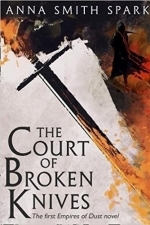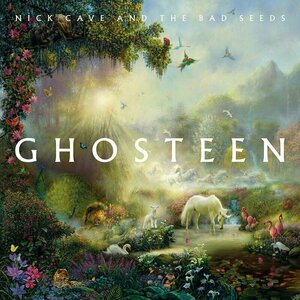Search
Search results
Hadley (567 KP) rated Those Bones Are Not My Child in Books
Nov 12, 2019
A different type of True Crime book (1 more)
Things you probably didn't know about the case
Writing transitions are confusing (1 more)
Smash poetry breaks up the flow
Toni Cade Bambara, a writer, documentary filmmaker and screenwriter, gives True Crime readers a unique viewpoint of the real Atlanta Child Murders. Bambara mostly writes from the eyes of Marzala, a mother of three whose oldest son goes missing during one of the worst murder sprees in Atlanta's history. Marzala and her family were not actual people during this time- - - all of them are based off of parents and siblings of the real victims. Not soon after Marzala does everything she can with the police to find her son, she joins a group of African-Americans that are outraged by the lack of progress to catch who is killing Atlanta's black children. This group forms what is called STOP (a citizen-run task force). For the majority of the book, Marzala with most of the black community in the area typed out letters to prominent government officials asking for help to stop the murders, also using Vietnam vets in the area to use their tracking skills to keep an eye on suspects, and investigating buildings that police refused to believe had anything to do with the childrens' disappearances and/or murders, which Bambara did an amazing job putting all the real facts together of the actual community members that were involved with this at the time. This story is upsetting, but enlightening on how politics may have caused so many children to be murdered. This is a story no reader will ever forget.
Bambara writes not in a normal narrative - - - just telling a story from specific viewpoints, but she often breaks off into smash poetry to depict a character's state-of-mind, which, sometimes can be off putting for the reader, breaking the flow of the story. Yet, the use of smash poetry combined with the era and the heart breaking subject at hand, separates Those Bones Are Not My Child from every True Crime book I have ever read. But a note for fans of True Crime, this story is from the view point of the victims' families and the search they went through to try and catch the murderer(s), unlike most TC books, which follow the police through the investigation leading to, usually, the capture of the perpetrator. From living in Atlanta during the time of the murders, Bambara was able to reconstruct the life of a black family in 1980's Georgia, while focusing on the effect these terrible crimes had on the surrounding community. Bambara did an amazing job on what most writers cannot.
The amount of characters, specifically the fictional ones, are very well created. She describes just enough to give readers the ability to tell them apart, showing every now and then from their own viewpoints. Out of all the characters, I came to really like Zala's two other children: Kenti and Kofi. One particular scene shows the strain of Sonny's disappearance on their family: " Zala parked the comb again and sat back. 'Listen, you two.' Kofi dropped down onto his knees. 'The police and the newspapers don't know what the hell is going on, so they feel stupid, because they're supposed to know, they're trained to know, they're paid to know. It's their job. Understand? But it's hard for grown-ups to admit they're stupid, especially if they're professionals like police and reporters. So they blame the children. Or they ignore them and fill up the papers with the hostages in Iran. Understand? And now... Jesus... they've got people calling those kids juvenile delinquents.'
'Don't cry.' Kenti tried to lean into her lap and got pushed away.
'They don't know a damn thing and they act like they don't want to know. So they blame the kids 'cause they can't speak up for themselves. They say the kids had no business being outdoors, getting themselves in trouble.'
'You let us go outdoors.'
'Of course I do, baby. We go lots of places, 'cause a lot of people fought hard for our right to go any damn where we please. But when the children go out like they've a right to and some maniac grabs them, then it's the children's fault or the parents who should've been watching every minute, like we don't have to work like dogs just to put food on the table.'
Kofi walked on his knees towards the bed, but he didn't lean on her like he wanted 'cause she might push him away. So he just put his hand on the mattress next to hers."
During the Atlanta Child Murders, victims were random, except for that they were children from the same neighborhood, and they were African-American. At first, police didn't believe a serial murderer was going around abducting children, but rather that 'poor, broken' families were killing their own. In the Prologue, Bambara shows that the victims' families and private detectives came up with more ideas of the motive than the police did:
" White cops taking license in Black neighborhoods.
The Klan and other Nazi thugs on the rampage.
Diabolical scientists experimenting on Third World people.
Demonic cults engaging in human sacrifices.
A 'Nam vet unable to make the transition.
UFO aliens conducting exploratory surgery.
Whites avenging Dewey Baugus, a white youth beaten to death in spring '79, allegedly by Black youths.
Parents of a raped child running amok with 'justice.'
Porno filmmakers doing snuff flicks for entertainment.
A band of child molesters covering their tracks.
New drug forces killing the young (unwitting?) couriers of the old in a bid for turf.
Unreconstructed peckerwoods trying to topple the Black administration.
Plantation kidnappers of slave labor issuing the pink slip.
White mercenaries using Black targets to train death squadrons for overseas jobs and for domestic wars to come. "
All of these theories are explored with evidence in Those Bones Are Not My Child. One scene in Part III, Zala's cop friend, B.J. shows up to her house to tell her to stop bringing attention to the investigation, " 'That Eubanks woman - - - your husband's friend? - - - she said you were bringing in the TV networks to blow the case open. I thought we had an agreement to keep each other informed. This morning I find out through the grapevine that you parents got a medium stashed in a hotel here in town, some woman who's been making headlines up north with cases that supposedly have the authorities stumped. If you knew how much work has been done on this case - - - no, listen, don't interrupt me. Then I find out - - - and not from you - - - that some of you parents are planning to tour the country cracking on the investigation. That's not too smart. And you should have told me.' " These two may have been fictional characters, but in Bambara's Acknowledgments, she states that all scenarios were true, and that she made B.J. to tell about the actual police officers who were involved with the investigation.
The tension between the police and the public is felt throughout the entire story. Despite all of the work the citizen task force put in, police arrested a man named Wayne Williams for the murder of two adult victims (who, due to their mental age, which was stated to be that of children, were placed on the victims' list of the Atlanta Child Murders): " Wayne Williams, charged with the murder of twenty-seven-year-old Nathaniel Cater and implicated in the murder of the other adults and children on the official list..." Zala, having worked for almost a year at the STOP offices, she, along with most of the community, doubt that Williams was a lone killer or even the killer at all. Williams never stood trial for the childrens' murders, but the police informed the public that he did it, case closed - - - although, after Williams' arrest, children were still being abducted and their bodies were still being found. Even after Williams' trial and the guilty verdict for two adult victims, some people stuck around to continue to investigate and claim Williams a 'scapegoat' of politics: " There were still pockets of interest and people who wouldn't let the case go. James Baldwin had been coming to town off and on; a book was rumored. Sondra O'Neale, the Emory University professor, hadn't abandoned her research, either. From time to time, TV and movie types were in the city poking around for an angle. Camille Bell was moving to Tallahassee to write up the case from the point of view of the STOP committee. The vets had taken over The Call now that Speaker was working full-time with the Central American Committee. The Revolutionary Communist Party kept running pieces on the case in the Revolutionary Worker. Whenever Abby Mann sent down a point man for his proposed TV docudrama, the Atlanta officials and civil rights leaders would go off the deep end. " At the end of it all, the questions still remain: did Williams kill all of those children by himself? Was he part of a pornographic cult that killed the children? Or is Williams completely innocent, and the murderer(s) are still out there? In Those Bones Are Not My Child, I guarantee you will be left questioning if the police were right.
All in all, the writing transitions can become confusing sometimes, especially the interludes of smash poetry, but I highly recommend this book to people who like the True Crime genre, especially of any interest in this specific case.
Bambara writes not in a normal narrative - - - just telling a story from specific viewpoints, but she often breaks off into smash poetry to depict a character's state-of-mind, which, sometimes can be off putting for the reader, breaking the flow of the story. Yet, the use of smash poetry combined with the era and the heart breaking subject at hand, separates Those Bones Are Not My Child from every True Crime book I have ever read. But a note for fans of True Crime, this story is from the view point of the victims' families and the search they went through to try and catch the murderer(s), unlike most TC books, which follow the police through the investigation leading to, usually, the capture of the perpetrator. From living in Atlanta during the time of the murders, Bambara was able to reconstruct the life of a black family in 1980's Georgia, while focusing on the effect these terrible crimes had on the surrounding community. Bambara did an amazing job on what most writers cannot.
The amount of characters, specifically the fictional ones, are very well created. She describes just enough to give readers the ability to tell them apart, showing every now and then from their own viewpoints. Out of all the characters, I came to really like Zala's two other children: Kenti and Kofi. One particular scene shows the strain of Sonny's disappearance on their family: " Zala parked the comb again and sat back. 'Listen, you two.' Kofi dropped down onto his knees. 'The police and the newspapers don't know what the hell is going on, so they feel stupid, because they're supposed to know, they're trained to know, they're paid to know. It's their job. Understand? But it's hard for grown-ups to admit they're stupid, especially if they're professionals like police and reporters. So they blame the children. Or they ignore them and fill up the papers with the hostages in Iran. Understand? And now... Jesus... they've got people calling those kids juvenile delinquents.'
'Don't cry.' Kenti tried to lean into her lap and got pushed away.
'They don't know a damn thing and they act like they don't want to know. So they blame the kids 'cause they can't speak up for themselves. They say the kids had no business being outdoors, getting themselves in trouble.'
'You let us go outdoors.'
'Of course I do, baby. We go lots of places, 'cause a lot of people fought hard for our right to go any damn where we please. But when the children go out like they've a right to and some maniac grabs them, then it's the children's fault or the parents who should've been watching every minute, like we don't have to work like dogs just to put food on the table.'
Kofi walked on his knees towards the bed, but he didn't lean on her like he wanted 'cause she might push him away. So he just put his hand on the mattress next to hers."
During the Atlanta Child Murders, victims were random, except for that they were children from the same neighborhood, and they were African-American. At first, police didn't believe a serial murderer was going around abducting children, but rather that 'poor, broken' families were killing their own. In the Prologue, Bambara shows that the victims' families and private detectives came up with more ideas of the motive than the police did:
" White cops taking license in Black neighborhoods.
The Klan and other Nazi thugs on the rampage.
Diabolical scientists experimenting on Third World people.
Demonic cults engaging in human sacrifices.
A 'Nam vet unable to make the transition.
UFO aliens conducting exploratory surgery.
Whites avenging Dewey Baugus, a white youth beaten to death in spring '79, allegedly by Black youths.
Parents of a raped child running amok with 'justice.'
Porno filmmakers doing snuff flicks for entertainment.
A band of child molesters covering their tracks.
New drug forces killing the young (unwitting?) couriers of the old in a bid for turf.
Unreconstructed peckerwoods trying to topple the Black administration.
Plantation kidnappers of slave labor issuing the pink slip.
White mercenaries using Black targets to train death squadrons for overseas jobs and for domestic wars to come. "
All of these theories are explored with evidence in Those Bones Are Not My Child. One scene in Part III, Zala's cop friend, B.J. shows up to her house to tell her to stop bringing attention to the investigation, " 'That Eubanks woman - - - your husband's friend? - - - she said you were bringing in the TV networks to blow the case open. I thought we had an agreement to keep each other informed. This morning I find out through the grapevine that you parents got a medium stashed in a hotel here in town, some woman who's been making headlines up north with cases that supposedly have the authorities stumped. If you knew how much work has been done on this case - - - no, listen, don't interrupt me. Then I find out - - - and not from you - - - that some of you parents are planning to tour the country cracking on the investigation. That's not too smart. And you should have told me.' " These two may have been fictional characters, but in Bambara's Acknowledgments, she states that all scenarios were true, and that she made B.J. to tell about the actual police officers who were involved with the investigation.
The tension between the police and the public is felt throughout the entire story. Despite all of the work the citizen task force put in, police arrested a man named Wayne Williams for the murder of two adult victims (who, due to their mental age, which was stated to be that of children, were placed on the victims' list of the Atlanta Child Murders): " Wayne Williams, charged with the murder of twenty-seven-year-old Nathaniel Cater and implicated in the murder of the other adults and children on the official list..." Zala, having worked for almost a year at the STOP offices, she, along with most of the community, doubt that Williams was a lone killer or even the killer at all. Williams never stood trial for the childrens' murders, but the police informed the public that he did it, case closed - - - although, after Williams' arrest, children were still being abducted and their bodies were still being found. Even after Williams' trial and the guilty verdict for two adult victims, some people stuck around to continue to investigate and claim Williams a 'scapegoat' of politics: " There were still pockets of interest and people who wouldn't let the case go. James Baldwin had been coming to town off and on; a book was rumored. Sondra O'Neale, the Emory University professor, hadn't abandoned her research, either. From time to time, TV and movie types were in the city poking around for an angle. Camille Bell was moving to Tallahassee to write up the case from the point of view of the STOP committee. The vets had taken over The Call now that Speaker was working full-time with the Central American Committee. The Revolutionary Communist Party kept running pieces on the case in the Revolutionary Worker. Whenever Abby Mann sent down a point man for his proposed TV docudrama, the Atlanta officials and civil rights leaders would go off the deep end. " At the end of it all, the questions still remain: did Williams kill all of those children by himself? Was he part of a pornographic cult that killed the children? Or is Williams completely innocent, and the murderer(s) are still out there? In Those Bones Are Not My Child, I guarantee you will be left questioning if the police were right.
All in all, the writing transitions can become confusing sometimes, especially the interludes of smash poetry, but I highly recommend this book to people who like the True Crime genre, especially of any interest in this specific case.
Kyera (8 KP) rated Clockwork Angel in Books
Jan 31, 2018
Clockwork Angel is the first book in the Infernal Devices trilogy by Cassandra Clare. It is set in Victorian London and has an air of steampunk – although it is not explicitly that genre. There are clockwork creations and automatons, a Shadowhunter inventor that tinkers with gears and wires, but the overall setting is not one of steam powered air machines and gear-covered outfits. As a fan of the steampunk genre and aesthetic, I quite enjoyed the subtle notes of it in this series.
The clockwork automatons are intriguing, as they are made from neither Heaven nor Hell and thus the Shadowhunters have no experience dealing with them. They create a unique foe to fight against and are a greater mystery – as our heroes do not know who truly created them, or their nefarious purpose.
Each chapter is headed with an excerpt from a poem that Tessa might have found herself reading over the years. Each is not only a wonderful addition to the story but if you enjoy them, perhaps it will lead you to seek them out in their original forms. I personally do not find myself frequently reading poetry, but the first time I read this book I fell in love with the poems selected. It caused me to go in search of them and read poetry. Perhaps you too will find yourself inspired.
As with the Mortal Instruments, our main character is a female who is unfamiliar with the Shadow World at the beginning of the novel. Before long, she is completely embroiled in the world, the politics and must learn as she goes. In this novel, our heroine is given the Shadowhunter Codex to read which allows her to quickly understand the roles of the Shadowhunter and the world she didn’t even know existed. I have always liked Tessa and felt a kinship to her, as we are very similar.
Tessa is quite tall, especially for a woman in the Victorian era, brunette and loves books more than anything else (other than perhaps her family.) Her Aunt was a very learned woman, so Tessa received a decent education and fostered a love of reading. She is able to quote from books that she loves and does not discriminate between books considered high-brow and those considered for the lower class of society. Tessa is very intelligent and not afraid to voice her opinions, even though it was not widely accepted at that time for women to be sharp of tongue. She also does not like chocolate, which endeared her to me immediately as I also am one of the few people it seems who does not like chocolate.
Our two male leads are Jem and Will, who are parabatai but quite dissimilar from one another. Jem was originally from the Shanghai Institute but found himself in the London Institute when his parents were murdered by demons. He is quiet, kind, intelligent and loves Will like a brother. Will is a Herondale, with all of the charm that comes with it. He is more reckless, boasts about frequenting brothels and dens of vice, and despite his outward attempts to appear cheerful is prone to melancholy.
The Institute is filled with other Shadowhunters and servants with vastly different personalities who bring a lot of interesting storylines with them. Charlotte and Henry are the heads of the Institute, despite their young age. Henry is a brilliant inventor, although a bit scatterbrained. Jessamine was forced to live in the Institute after the death of her parents, but she has never desired to be a Shadowhunter.
The first book introduces us to the Shadow World of London, as Tessa is invited to travel from New York to London to live with her brother. Her plans do not turn out as she had expected and it leads her on an adventure with the Nephilim. It is fascinating to see how different the Shadowhunters of this era are, and yet utterly the same. It was also interesting to see how the Shadowhunters view the Downworld. While it was not entirely equal to the time of the Mortal Instruments series, you realize that is has improved in the century since the Infernal Devices and must be leagues above the treatment in the earliest years of the Nephilim.
Whether Clockwork Angel is your first foray into the Shadow World, or not, it is a highly entertaining and well-written novel that I could not recommend more. Many people feel that this series is the best of the three, so if you’ve been considering reading any of the Shadowhunter Chronicles but were not quite sure – perhaps this is a good place to start. I personally would recommend reading a number of the Mortal Instruments before beginning this series, but that is just my opinion. Either way, if you have not yet read this book – please go do so now! It is one of my favourites and I hope that it will be yours as well.
The clockwork automatons are intriguing, as they are made from neither Heaven nor Hell and thus the Shadowhunters have no experience dealing with them. They create a unique foe to fight against and are a greater mystery – as our heroes do not know who truly created them, or their nefarious purpose.
Each chapter is headed with an excerpt from a poem that Tessa might have found herself reading over the years. Each is not only a wonderful addition to the story but if you enjoy them, perhaps it will lead you to seek them out in their original forms. I personally do not find myself frequently reading poetry, but the first time I read this book I fell in love with the poems selected. It caused me to go in search of them and read poetry. Perhaps you too will find yourself inspired.
As with the Mortal Instruments, our main character is a female who is unfamiliar with the Shadow World at the beginning of the novel. Before long, she is completely embroiled in the world, the politics and must learn as she goes. In this novel, our heroine is given the Shadowhunter Codex to read which allows her to quickly understand the roles of the Shadowhunter and the world she didn’t even know existed. I have always liked Tessa and felt a kinship to her, as we are very similar.
Tessa is quite tall, especially for a woman in the Victorian era, brunette and loves books more than anything else (other than perhaps her family.) Her Aunt was a very learned woman, so Tessa received a decent education and fostered a love of reading. She is able to quote from books that she loves and does not discriminate between books considered high-brow and those considered for the lower class of society. Tessa is very intelligent and not afraid to voice her opinions, even though it was not widely accepted at that time for women to be sharp of tongue. She also does not like chocolate, which endeared her to me immediately as I also am one of the few people it seems who does not like chocolate.
Our two male leads are Jem and Will, who are parabatai but quite dissimilar from one another. Jem was originally from the Shanghai Institute but found himself in the London Institute when his parents were murdered by demons. He is quiet, kind, intelligent and loves Will like a brother. Will is a Herondale, with all of the charm that comes with it. He is more reckless, boasts about frequenting brothels and dens of vice, and despite his outward attempts to appear cheerful is prone to melancholy.
The Institute is filled with other Shadowhunters and servants with vastly different personalities who bring a lot of interesting storylines with them. Charlotte and Henry are the heads of the Institute, despite their young age. Henry is a brilliant inventor, although a bit scatterbrained. Jessamine was forced to live in the Institute after the death of her parents, but she has never desired to be a Shadowhunter.
The first book introduces us to the Shadow World of London, as Tessa is invited to travel from New York to London to live with her brother. Her plans do not turn out as she had expected and it leads her on an adventure with the Nephilim. It is fascinating to see how different the Shadowhunters of this era are, and yet utterly the same. It was also interesting to see how the Shadowhunters view the Downworld. While it was not entirely equal to the time of the Mortal Instruments series, you realize that is has improved in the century since the Infernal Devices and must be leagues above the treatment in the earliest years of the Nephilim.
Whether Clockwork Angel is your first foray into the Shadow World, or not, it is a highly entertaining and well-written novel that I could not recommend more. Many people feel that this series is the best of the three, so if you’ve been considering reading any of the Shadowhunter Chronicles but were not quite sure – perhaps this is a good place to start. I personally would recommend reading a number of the Mortal Instruments before beginning this series, but that is just my opinion. Either way, if you have not yet read this book – please go do so now! It is one of my favourites and I hope that it will be yours as well.
Kristy H (1252 KP) rated The Sun is Also a Star in Books
Feb 13, 2018
Natasha is a Jamaica-born teenager who believes more in science than true love. She and her family are also about to be deported back to Jamaica. Daniel, the son of Korean-born parents, is a dutiful son who dreams of becoming a poet. Daniel loves words and the idea of fate. When he meets Natasha, he's convinced she's his. His fate, his true love. Natasha isn't so sure, but she can't help but admit that this handsome, intelligent boy is something special.
What follows is an amazing story of two young people: most of it occurring across the day they meet. Told from the alternating perspectives of Natasha and Daniel, but interspersed with bits and pieces of history, facts, and small insights into the people with whom they come into contact on their one magical day, this is a beautiful, lovely, and touching story. Daniel readily admits in the novel that he's a cheesy guy, and yes, the story may be a bit cheesy at points, but boy, it draws you in immediately, and it's just... great. I really loved Yoon's first book, [b:Everything, Everything|18692431|Everything, Everything|Nicola Yoon|https://images.gr-assets.com/books/1450515891s/18692431.jpg|26540216], and I think this one may be even better. How does she do it?
Daniel and Natasha spring to life in front of you, as you frantically flip pages, wondering what will become of these two people. The bit players in their life take on a life all of their own, thanks to the little insight you receive via their own chapters. I am just awed at how well this woman writes teenage characters - spirited, real, flawed, lovely characters. I read the second half of this book in one sitting, because I just had to see how it ended, and find out the fate of Natasha and Daniel.
Indeed, the racial and immigration plotlines of this novel could not seem more timely, what with the Presidential Election and the current tumult America is undergoing. I wish this book was required reading of every citizen.
<i>"If people who were actually born here had to prove they were worthy enough to live in America, this would be a much less populated country." ~ Natasha</i>
This is not just a potential love story; this is a book that will make you think and make you cry. It's a love story of teens, it's an ode to New York City, and it's a tribute to both science and poetry. I highly recommend it.
What follows is an amazing story of two young people: most of it occurring across the day they meet. Told from the alternating perspectives of Natasha and Daniel, but interspersed with bits and pieces of history, facts, and small insights into the people with whom they come into contact on their one magical day, this is a beautiful, lovely, and touching story. Daniel readily admits in the novel that he's a cheesy guy, and yes, the story may be a bit cheesy at points, but boy, it draws you in immediately, and it's just... great. I really loved Yoon's first book, [b:Everything, Everything|18692431|Everything, Everything|Nicola Yoon|https://images.gr-assets.com/books/1450515891s/18692431.jpg|26540216], and I think this one may be even better. How does she do it?
Daniel and Natasha spring to life in front of you, as you frantically flip pages, wondering what will become of these two people. The bit players in their life take on a life all of their own, thanks to the little insight you receive via their own chapters. I am just awed at how well this woman writes teenage characters - spirited, real, flawed, lovely characters. I read the second half of this book in one sitting, because I just had to see how it ended, and find out the fate of Natasha and Daniel.
Indeed, the racial and immigration plotlines of this novel could not seem more timely, what with the Presidential Election and the current tumult America is undergoing. I wish this book was required reading of every citizen.
<i>"If people who were actually born here had to prove they were worthy enough to live in America, this would be a much less populated country." ~ Natasha</i>
This is not just a potential love story; this is a book that will make you think and make you cry. It's a love story of teens, it's an ode to New York City, and it's a tribute to both science and poetry. I highly recommend it.
Phillip McSween (751 KP) rated Three O'Clock High (1987) in Movies
Jul 27, 2018
Solid 80's Film
I've seen a lot of 80's films this year alone. I have to say, I had just as much fun watching Three O'Clock High as I did any of the other more familiar 80's titles, in some cases moreso. The comedy is about a nerd who gets on a bully's bad side and gets challenged to a fight after school. Jerry (nerd in question) spends his entire day doing whatever he can to try and get out of the fight and the antics that ensue are hilarious.
Acting: 10
Beginning: 4
Definitely the weakest part of the film. The beginning of the day drags out as they follow every single facet of Jerry's routine. I understand that they are trying to show the audience how boring Jerry was, but I don't think it needed to take that long.
Characters: 10
Cinematography/Visuals: 7
So many great memorable shots. The scene in the library. Jerry's poetry reading in class where he's hitting on the teacher. The big climax. Director Phil Joanou does an excellent job of capturing the intensity and emotion from each moment.
Conflict: 10
Jerry doesn't want to get beat up so he's willing to do any and everything to get out of the proposed fight. Things never seem to get old as Jerry's efforts lead him down a rabbit hole of trouble. It only gets funnier as the story progresses.
Genre: 7
Memorability: 8
The film is captured and progresses in such a way that you can't help but remember a number of scenes that played out. I don't want to spoil the fun, but it's definitely a film you will want to again once you're done. I think that has a lot to do with Jerry's crazy character development over the course of the story.
Pace: 10
A less than stellar beginning is quickly corrected with nonstop comedy and action-driven moments. I couldn't wait to see what was going to happen next as Jerry pushes the envelope from one scene to the next. Among other things, I appreciated the film's consistency.
Plot: 10
Resolution: 9
Not perfect, but gets the job done. Not to mention, it's light years better than the beginning. Kind of cheesy, but in a good way.
Overall: 85
If you're looking for a fun movie night or a way to expand your 80's film palate, Three O'Clock High is definitely worth your time. Solid film.
Acting: 10
Beginning: 4
Definitely the weakest part of the film. The beginning of the day drags out as they follow every single facet of Jerry's routine. I understand that they are trying to show the audience how boring Jerry was, but I don't think it needed to take that long.
Characters: 10
Cinematography/Visuals: 7
So many great memorable shots. The scene in the library. Jerry's poetry reading in class where he's hitting on the teacher. The big climax. Director Phil Joanou does an excellent job of capturing the intensity and emotion from each moment.
Conflict: 10
Jerry doesn't want to get beat up so he's willing to do any and everything to get out of the proposed fight. Things never seem to get old as Jerry's efforts lead him down a rabbit hole of trouble. It only gets funnier as the story progresses.
Genre: 7
Memorability: 8
The film is captured and progresses in such a way that you can't help but remember a number of scenes that played out. I don't want to spoil the fun, but it's definitely a film you will want to again once you're done. I think that has a lot to do with Jerry's crazy character development over the course of the story.
Pace: 10
A less than stellar beginning is quickly corrected with nonstop comedy and action-driven moments. I couldn't wait to see what was going to happen next as Jerry pushes the envelope from one scene to the next. Among other things, I appreciated the film's consistency.
Plot: 10
Resolution: 9
Not perfect, but gets the job done. Not to mention, it's light years better than the beginning. Kind of cheesy, but in a good way.
Overall: 85
If you're looking for a fun movie night or a way to expand your 80's film palate, Three O'Clock High is definitely worth your time. Solid film.
Ross (3284 KP) rated The Court of Broken Knives in Books
Aug 7, 2018
Finally, well executed, gritty literary fantasy
I had skimmed some reviews of this book after seeing glowing recommendations of it in different facebook groups. I was warned the tone of the narrative was off-putting and very different to the genre. I have read a few authors who try and put a more literary, almost poetic slant on the narrative in fantasy books and I always found it a bit flowery and took me out of the story.
Not so here. I'll admit the tone took me a couple of chapters to get to grips with, but I am so glad I stuck with it. The lyrical poetry contained within the narrative is so good that it adds to the story being told, it puts some emotion into the storytelling, something that is so sorely lacking from many books in third-person narrative.
Descriptions of people, places, feelings, events take on a whole new level of tangibility so rarely felt in fantasy fiction (without going down the Stephen King route of describing everything, and avoiding the Robert Jordan horse/riding dress description pratfalls).
The only place this becomes an issue is at times in the action scenes. On occasion I had to re-read a passage to work out what had actually happened - while I enjoyed the words I had struggled to pick up on what had occurred.
The story itself is not overly elaborate and unfolds before you with little warning. It felt like a natural, flowing journey than a series of events loosely tied together. We have the gritty mercenary company en route to unleash hell on the Empire, the great priestess of the God of living and dying (who has to sacrifice someone every few days to ensure life and death continue to operate properly) and we have the political manoeuvrings of the high lords within the Empirical council. This is all weaved together in the first third of the book to an excellent, surprising conclusion (in what many authors would have filled a whole book with ad nauseum), with the remainder of the book being a journey through wild country while everyone double-crosses everyone else.
This is of the grim-dark sub-genre, which basically means everyone is a bit of a shit, and bad things happen to nice people. There are no heroes here. There are characters you come to rout for (or despise) but you know it is wrong to do so as they are all so nasty and flawed in so many ways, like humanity itself.
Don't be expecting a happy ending!
Not so here. I'll admit the tone took me a couple of chapters to get to grips with, but I am so glad I stuck with it. The lyrical poetry contained within the narrative is so good that it adds to the story being told, it puts some emotion into the storytelling, something that is so sorely lacking from many books in third-person narrative.
Descriptions of people, places, feelings, events take on a whole new level of tangibility so rarely felt in fantasy fiction (without going down the Stephen King route of describing everything, and avoiding the Robert Jordan horse/riding dress description pratfalls).
The only place this becomes an issue is at times in the action scenes. On occasion I had to re-read a passage to work out what had actually happened - while I enjoyed the words I had struggled to pick up on what had occurred.
The story itself is not overly elaborate and unfolds before you with little warning. It felt like a natural, flowing journey than a series of events loosely tied together. We have the gritty mercenary company en route to unleash hell on the Empire, the great priestess of the God of living and dying (who has to sacrifice someone every few days to ensure life and death continue to operate properly) and we have the political manoeuvrings of the high lords within the Empirical council. This is all weaved together in the first third of the book to an excellent, surprising conclusion (in what many authors would have filled a whole book with ad nauseum), with the remainder of the book being a journey through wild country while everyone double-crosses everyone else.
This is of the grim-dark sub-genre, which basically means everyone is a bit of a shit, and bad things happen to nice people. There are no heroes here. There are characters you come to rout for (or despise) but you know it is wrong to do so as they are all so nasty and flawed in so many ways, like humanity itself.
Don't be expecting a happy ending!
Kirk Bage (1775 KP) rated Ghosteen by Nick Cave & The Bad Seeds in Music
Mar 3, 2020 (Updated Aug 6, 2020)
My intention was to listen to this twice through and then tell you what I thought about it. In the past, I have always admired Nick Cave more in theory than in practice. Finding his heavier touches a little too “noisy”. Typified by the 2004 release Abbatoir Blues / The Lyre of Orpheus, where I listened to the latter, gentler side over and over, and largely left the more raucous tracks on the former alone.
Because of this personal preference, I have ended up virtually listening to Ghosteen on loop for a full week, as it leans very definitely towards the softer side of his soul – at times almost ambient dreamscape, washing over you like tired thoughts just before sleep. And, often, that is what it became for me: a night album to drift away to.
It is an album about grief, regret, spirituality and humanism. There is a misconception that it is wholly inspired by the death of Cave’s son Arthur, but, in his own words, it was more the death of band member Conway Savage that allowed the themes and lyrics to become the work.
As always, it is Cave’s poetry that emerges as the backbone and soul of every song. The melodies wash over you, at times indistinguishable as separate tracks, and you begin to feel invited into a man’s heart and mind as he explores mortality, shifting between anger, acceptance, fear and hope, in a segue of sound that feels ultimately like a mood painting, defying criticism.
At times listening feels like an intrusion; like these thoughts are too personal to eavesdrop on. At other times, you feel taken by the hand and invited to look at something beautiful. If you allow yourself to be taken on this journey willingly, your empathy will be coaxed and encouraged, and it will be safe. Sadness is only one part of grief, seems to be the message, and it’s a message I relate to and adore.
Labels such as “art-rock” and “post-punk” get thrown at Cave, in futile efforts to pin him down. I think it best not to try. For me, he is truly one of a handful of musicians alive who can be called an artist without hyperbole. His work has texture and emotion that goes beyond how we normally judge music. Making it ok to not “like” a song, as long as it tells part of the story.
For sure his best work for quite a while. At times, so perfect it seems churlish to judge it at all.
Because of this personal preference, I have ended up virtually listening to Ghosteen on loop for a full week, as it leans very definitely towards the softer side of his soul – at times almost ambient dreamscape, washing over you like tired thoughts just before sleep. And, often, that is what it became for me: a night album to drift away to.
It is an album about grief, regret, spirituality and humanism. There is a misconception that it is wholly inspired by the death of Cave’s son Arthur, but, in his own words, it was more the death of band member Conway Savage that allowed the themes and lyrics to become the work.
As always, it is Cave’s poetry that emerges as the backbone and soul of every song. The melodies wash over you, at times indistinguishable as separate tracks, and you begin to feel invited into a man’s heart and mind as he explores mortality, shifting between anger, acceptance, fear and hope, in a segue of sound that feels ultimately like a mood painting, defying criticism.
At times listening feels like an intrusion; like these thoughts are too personal to eavesdrop on. At other times, you feel taken by the hand and invited to look at something beautiful. If you allow yourself to be taken on this journey willingly, your empathy will be coaxed and encouraged, and it will be safe. Sadness is only one part of grief, seems to be the message, and it’s a message I relate to and adore.
Labels such as “art-rock” and “post-punk” get thrown at Cave, in futile efforts to pin him down. I think it best not to try. For me, he is truly one of a handful of musicians alive who can be called an artist without hyperbole. His work has texture and emotion that goes beyond how we normally judge music. Making it ok to not “like” a song, as long as it tells part of the story.
For sure his best work for quite a while. At times, so perfect it seems churlish to judge it at all.

Audiobooks - 5,239 Classics Ready to Listen
Book and Education
App
This is the top rated audiobook app on the planet. Browse our handpicked collections, download any...
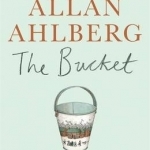
The Bucket: Memories of an Inattentive Childhood
Book
The Bucket by Allan Ahlberg - the enthralling childhood story one of Britain's best-loved children's...
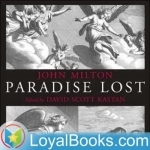
Paradise Lost by John Milton
Podcast
Magnificent in its scale and scope, this monumental poem by the blind poet John Milton was the first...
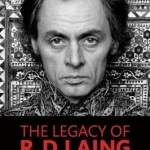
The Legacy of R. D. Laing: An Appraisal of His Contemporary Relevance
Book
The name R. D. Laing continues to be widely recognized by those in the psychotherapy community in...
